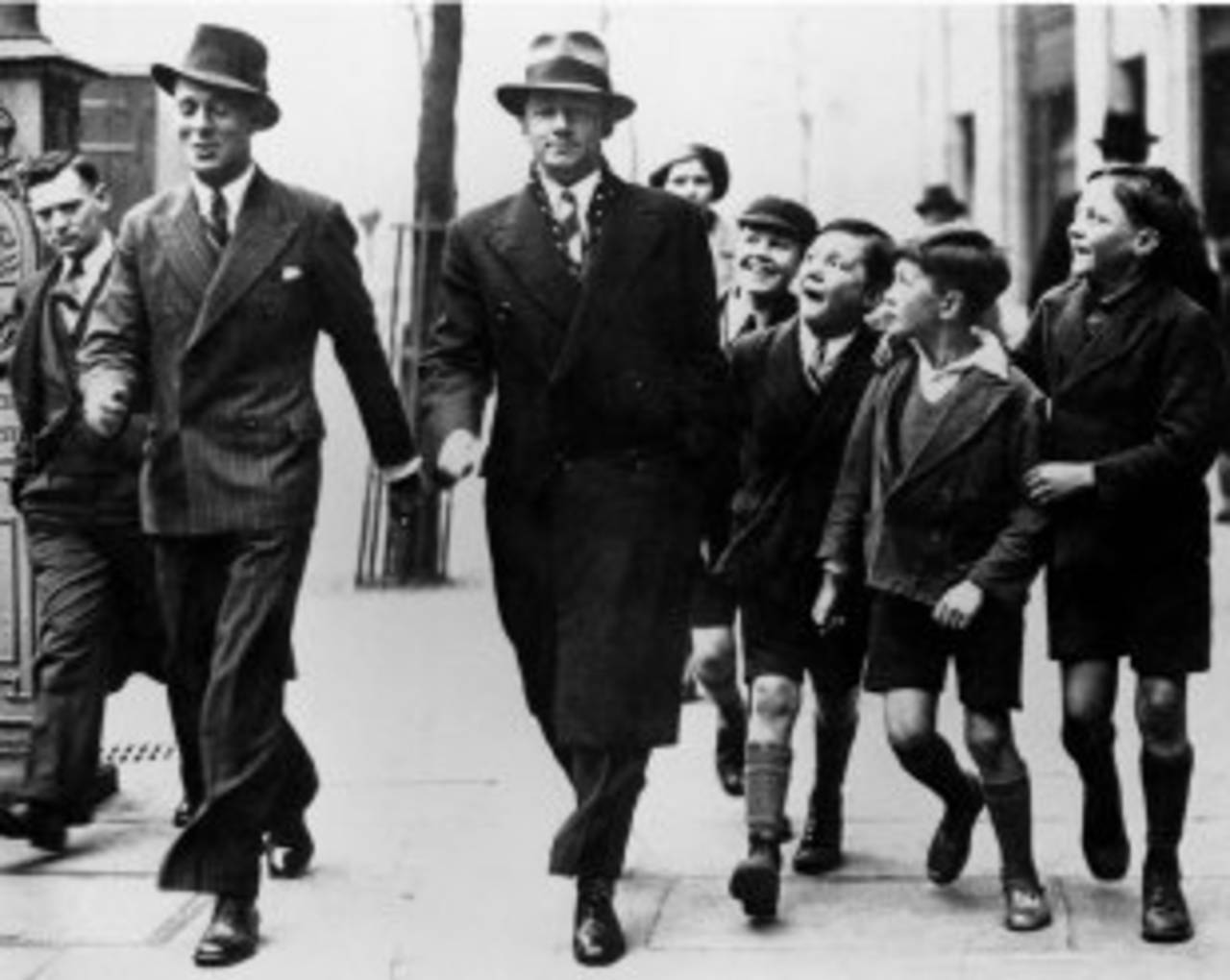Bradman
Cricket's greatest batsman was a colossal contradiction: a young visionary and an old reactionary; and he triggered the sport's first two great cataclysms
Christian Ryan
03-Apr-2010

Don Bradman: admired, if not loved, by all • Getty Images
1928-48
History's most colossal batsman is, in many respects, a colossal irrelevance. Nobody ever emulated 99.94, the one average that will never be average. None ever mimicked that barmy stance - bat between his feet, back-lift pointing towards gully. He did not play in Asia or Africa or the Caribbean. He did inspire cricket's first great cataclysm, Bodyline, but only briefly. From 1928 to 1948 he was roughly twice as good as anyone who ever had, or ever would, play the game. Then he quit and everything returned to normal.
He was a colossal contradiction too. He spawned dozens of books, yet revealed almost nothing. He answered umpteen-thousand letters from complete strangers but avoided his own ma and pa's funerals. His 1948 Invincibles exuded joy and goodwill, yet he could be as quick to dispute a catch or order a bumper barrage as the next mortal. He was a money-alert player but a penny-pinching administrator - the young visionary who stood up for his economic worth becoming an old reactionary, who according Ian Chappell, "treated the board's money as though it was almost his own". Thus, by default, he helped trigger cricket's second great cataclysm: World Series Cricket.
Bradman mattered, though, because of his omnipotence and origins. He was the supreme master of any ball game - better than Pele, Nicklaus and Jordan - and he lent cricket a lustre and romance. It lives on today in the obscene sums forked out for a dead man's old green caps. The fact that he came from a small town in a colonial doormat made him all the more powerful. As Matthew Engel, an Englishman, wrote on the day Bradman died: "More than any politician, he gave Australia a unity of purpose and a sense of itself and of its own worth as a country… No sportsman has ever influenced a country's history to the same extent."
Bradman was bigger than the sport he played and the country he lived in. Irrelevant? Hardly.
Christian Ryan is a writer based in Melbourne. This article was first published in Wisden Asia Cricket magazine